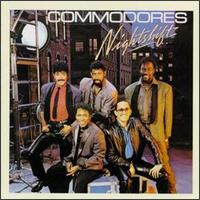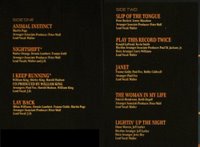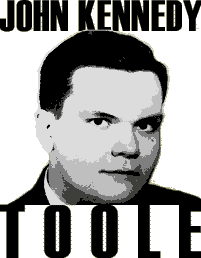
Ever since I turned my book in to the publisher I continue to have these moments where I kick myself for forgetting one song or another. Going in to the project I knew it was going to be difficult to discuss all the songs that have been key in my life, but at the same time, I did not think that I was going to have any glaring oversights. After all, all how hard could it be to make a list of my favorite songs, and then take it from there…easier said than done.
The song that I regret most not including, or rather, forgetting to include in my memoir, is the underappreciated Commodores classic, “The Nightshift.”
Featured on the album of the same name, “The Nightshift” is an ode to Marvin Gaye and Jackie Wilson, two musical legends who passed away in 1984 a year before the song’s release. I was only eight when Marvin and Jackie died, and because my parents had only been in the states for that same amount of time—they emigrated from Haiti—American music was not that big in our household. This meant that only a few transcendent figures, notably Marvin Gaye, Michael Jackson and Stevie Wonder, and my mom’s crushes Smokey Robinson and Lionel Richie were the only African American musicians whose work they played with any regularity. Lacking the historical context needed to understand the relationships between these artists Jackie Wilson’s passing went unnoticed in my household. Marvin Gaye’s however, was a whole other matter.
My parents watched all the news reports about Marvin’s death, purchased newspapers and even an issue of Jet magazine, and spent hours talking with each other and their friends about this tragedy. I did my best to understand why my parents were so obsessed with this incident, but I could not make out the story that lay in between the lines of what then seemed like incoherent chatter. “Can you believe it,” Dad would pronounce before letting out a deep sigh that he liked to punctuate with a whistling sound, almost like a tea-kettle going off. Mom’s response was equally vague; she’d belt out “Oh Jesus,” then start shaking her head and if she were sitting rub her hands along her lap as if she were trying to iron out some newly discovered creases. And if she were standing, she’d cross herself, concluding a prayer that I did not know had started.
It was my friend Alex, who was two years older and was born and raised in the United States, who explained to me why my parents were so struck by Marvin’s death. He told me that Marvin was killed by his father and that his music was legendary. But it was time that eventually enabled me to understand the great loss suffered by the world with Marvin Gaye’s passing. And it was also time that eventually enabled me to understand the great gift bestowed by The Commodores to help the world commemorate the lives of Marvin Gaye and Jackie Wilson.
In all honesty for the longest time I thought “Nightshift” was a love song, an ode to working on the metaphorical nightshift. I never used to pay attention to the lyrics and instead let myself be carried away by beat, the delicate interplay between the maracas and bass, which are deftly accented by the various synthesizer chords and drums. It was also easier to watch Mom and Dad dance to this song than to try focus in and try to capture its importance. I was always captivated by the smiles streaming across their faces; especially Mom’s when Dad twirled her around, her hair briefly floating off her shoulders before settling back on them just as gently as she settled back into Dad’s arms. Holding hands, looking each other in the eyes, hips swaying up and down in unison, feet gliding across the floor, sweat slowly cascading down Dad’s dark brown forehead, mom wearing her favorite burgundy dress with the spaghetti straps and having a white napkin at the ready for when one of the drops of Dad’s perspiration threatened to get too close to her dress—and then he’d push her back, for a brief second their side by side, before quickly returning to their original dancing pose, smiling at their improvisation and sneaking in a guess as if they were still teenagers kissing underneath a remote tree in Petion-ville Haiti out from under the watchful eye of one of their parents. There was no need for me to pay attention to the lyrics in 1985 because the love in their eyes was a better melody than anything a musician could conjure up.
When I finally did learn the meaning behind “Nightshift,” I fell in love with the song. I thought The Commodore’s did a fabulous job of relaying the spirit of Jackie and Marvin, as well as the affection and inspiration that so many people have and cull from their lives and their music. “Nightshift” wonderfully captures the essence of Jackie’s transcendent talents as a performer/dancer, and then blends it with the eloquent lyrical sensitivity for which Marvin is famous.
 The reason that I instantly began slapping myself silly once I realized that I neglected to include “Nightshift” in the book it has all the elements that I love in a song, it’s poignant without being sad, lively without being mindless, and most of all paints a portrait without losing the ability to be timeless or universal. And for the past twelve years as I have toiled on the nightshift trying to finish up one project or another, console a friend or finding consolation myself, cuddling up next to someone special or curdling with despair at the absence of that special person from my life, “Nightshift” has taken on a slew of different meanings and significance in my life. Far from a night owl, the energy that I have culled from late night listening sessions has made working the nightshift as sweet and unforgettable as the music of Jackie and Marvin that inspired this Commodore’s classic.
The reason that I instantly began slapping myself silly once I realized that I neglected to include “Nightshift” in the book it has all the elements that I love in a song, it’s poignant without being sad, lively without being mindless, and most of all paints a portrait without losing the ability to be timeless or universal. And for the past twelve years as I have toiled on the nightshift trying to finish up one project or another, console a friend or finding consolation myself, cuddling up next to someone special or curdling with despair at the absence of that special person from my life, “Nightshift” has taken on a slew of different meanings and significance in my life. Far from a night owl, the energy that I have culled from late night listening sessions has made working the nightshift as sweet and unforgettable as the music of Jackie and Marvin that inspired this Commodore’s classic.
And while I may have forgotten to put in the book, I will never forget all places in my heart and mind that "Nightshift" has cultivated and made richer by its presence.











